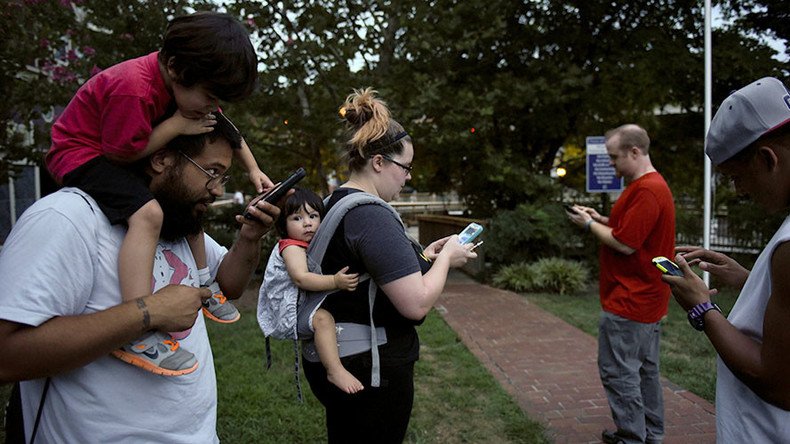Pokémon Go away: Homeowners sue over Pokestop on their property

Ornery old people yelling at kids to get off their lawn is a classic stereotype, but not when it comes to Pokémon Go. A couple in Michigan is suing Niantic, the company behind Pokémon Go, for encouraging players to enter their property.
Scott Dodich and Jayme Gotts-Dodich of St. Clair Shores, Michigan enjoyed living in their quiet, safe neighborhood for two years. But just a few months ago, things got weird. According to their lawsuit against Niantic, their “once-quiet street degenerated into ‘a nightmare’ for Plaintiffs and their neighbors.”
What is to blame for destroying their suburban bliss? Pokémon Go.
Across the street from the Dodich and Gotts-Dodich family is Wahby Park, a quiet area that the lawsuit claims rarely had more than a dozen people in it at a time. That was before Niantic placed a Pokéstop and a Pokémon Gym around the park.
Get off my lawn: New Jersey man sues Pokemon game creators over players on his property https://t.co/E0k8gqgBCnpic.twitter.com/rXkhRD4O4Q
— RT America (@RT_America) August 2, 2016
The visitors that flocked to the area showed little respect for the neighborhood they were passing through, the lawsuit claims, “Pokémon Go players parked their cars in front of Plaintiffs’ and their neighbors’ homes, blocking their driveways.”
The park’s operating hours did little to impede the players who would “‘[hide] on our street or in the bushes, then come right back once police leave.’”
In addition, players wandered onto private property and would grow aggressive when confronted, such as when Gotts-Dodich asked a player to leave, only to be told “shut up b****, or else.”
The lawsuit claims that when they weren’t verbally assaulting property owners, players would look into their windows, trample landscaping and changed the atmosphere of the neighborhood they moved to because of the safety and privacy.
In late July, Plaintiffs requested the removal of the Pokestops and Pokémon Gym that Niantic had placed near their home, using the designated request form on the company’s website.
In response, they received only an automated form reply: “Thank you for reporting this PokéStop/Gym. We will review and take appropriate action. You’ll receive a follow-up email once your request has been reviewed.”
“We don’t feel safe having people on our property looking into our home. Nor do we feel safe with random vehicles parking, driving slow, and hanging out on our street. We don’t know who is playing the game, who is looking at our homes to break in or steal, who is a pedophile or rapist. I don’t feel safe sitting on our porch, something we love to do,” the lawsuit reads.
They attempted to contact Niantic to alert them of the issue by using a designated request form on the website, only to receive an automated reply reading, “Thank you for reporting this PokéStop/Gym. We will review and take appropriate action. You’ll receive a follow-up email once your request has been reviewed.”
They filed several more complaints that generated the same response.
They aren’t the only people having issues with Pokémon Go’s choices for locations. The Holocaust Museum had similar complaints, along with a cemetery in Alabama.
Zoo must be kidding: Pokémon Go players scale perimeter, sit next to tiger enclosure https://t.co/as5gQUGqrRpic.twitter.com/VRJ7KC6f8O
— RT America (@RT_America) July 15, 2016












